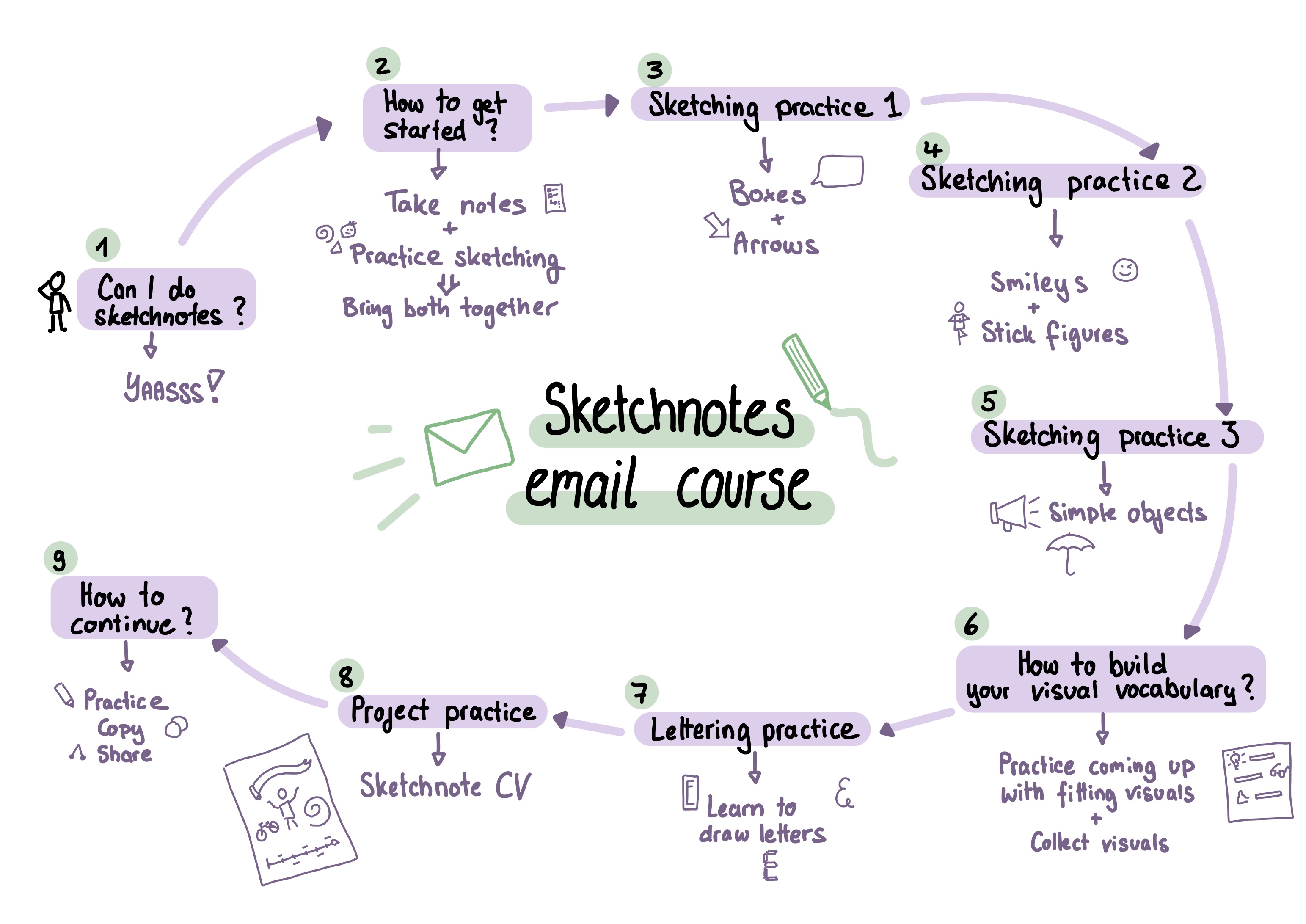Check out what happened at the Open Science Retreat 2024! 🤩
|
Dr. Heidi Seibold
All things open and reproducible data science.
New frameworks for course websites are popping up all the time. In this post, I'll review some of them. Today I want to talk about three interesting frameworks for building course websites: Quarto, the Carpentries Workbench, and Nebula. All of them rely on the use of Markdown and are thus easy to version control, reproducible, and reusable. They’re all pretty handy when teaching software skills, as they allow incorporating code in a straight-forward way. Quarto Websites / Books Website Docs /...
Taking notes and drawing little images helps me think, but they are also helpful to others. Would sketchnoting also be for you? I started sketchnoting by taking notes about scientific presentations and meetings. They help me think and keep me focused on what is said. If used to find it very hard to concentrate during presentations and I found a couple of ways to focus on what is said and trying to really understand it. One of them is making myself come up with questions about the talk (a...
Too many code projects in research are done by a single person. Keep reading on why that's bad and how to do better. It’s been a while since my last post. Founding the Digital Research Academy, holidays and LOTS AND LOTS of workshops and events have taken all my time. But it’s time to start writing again. One of the workshops I taught since my last post was on collaborative coding at the wonderful RSE summer school at KIT (click through the timetable to find all kinds of cool materials)....

